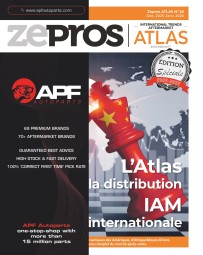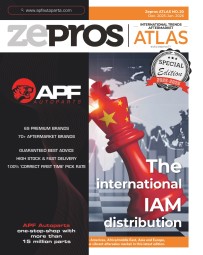
[Atlas] ITGs at a crossroads

Europe is already a partially concentrated market where IAM distribution groups are in a strong position with a certain power. They are starting to step on the toes of the international purchasing groups who have responded by looking further afield.
In recent years, ITGs, all born in Europe, have focussed their efforts on expanding beyond their continental borders to South America, Africa and Asia. They bring their IAM-style know-how, their influence as a referencing centre and negotiator, their garage concepts and their emerging digital solutions. They give their suppliers opportunities to gain potential new customers. Nexus Automotive International has for example built an economic model on a worldwide scale and quickly found its critical mass with mid-size distributors. It is present in markets with fragmented distribution networks attentive to the consolidation of purchasing power. It now attracts European players who no longer work with the traditional international groupings or have been excluded by larger members than themselves. Amerigo International has also established itself in this worldwide niche.

Because in Europe, the historic mission of ITGs needs to be revisited. “Depending on the level of cooperation and cohesion, ITGs could enable better planning and management of stocks”, says Fotios Katsardis (Temot Interntional). But these retai l groups are growing and now have purchasing power that gives them the freedom to choose suppliers – including alternative and own brands – on competitive terms. As they are integrated, these groups can guarantee volumes, ITGs cannot do so because of their members wide variety of referencing strategies.
Even amid a supply crisis, we have heard little from ITGs, except some asking suppliers not to forget their members in the short-list of those to be served first. “Staying united in difficult times is not the standard. The distributor acts alone to defend their interests, we can see this now with the various announcements from the large distributors” clarifies F. Katsardis. They still have plenty of business to keep them busy. “Let’s not forget that even in Europe, there are still small players or even national groups who need the support of the bulk offered by the ITGs to remain in the market” says an observer.
So why do LKQ, AAG or PHE remain loyal to their respective groups? Out of gratitude to these groups who have also helped them grow and, for at least two of them, from where they originated (ADI and GAUI). Are these purchasing centres acting like a gentlemen’s club?
No, because they seem to be changing to take on a role of pooling thoughts, or even opening up avenues to anticipate changes. Not to mention that they are the voice of distributors in the vital battle of access to data.
Caroline Ridet








